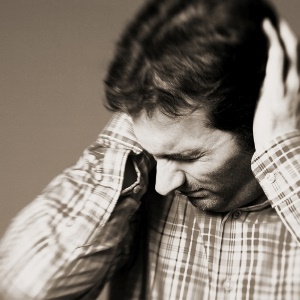
Many people misunderstand anxiety disorders and think individuals should be able to overcome the symptoms by sheer willpower. Wishing the symptoms away does not work; however, there are treatments that can help.
If you or someone you know has symptoms of anxiety, a visit to the family doctor is usually the best place to start. Your doctor can help you determine if the symptoms are due to an anxiety disorder, some other medical condition, or both.
Most often, the next step to getting treatment for an anxiety disorder is referral to a mental health professional. Among the professionals who can help are psychiatrists, psychologists, social workers and counsellors.
Remember that when you find a health care professional you're satisfied with, you will work together as a team. This includes developing a plan to treat your anxiety disorder that may involve medication, behavioural therapy, cognitive-behavioural therapy (CBT) or another form of psychotherapy your doctor believes is appropriate.
Psychologists, social workers and counsellors sometimes work closely with a psychiatrist or other doctors who will prescribe medications when they are required.
For some people, group therapy or self-help groups are a helpful part of treatment. Many people do best with a combination of these therapies.
If you have been taking medication, don't stop taking it abruptly - rather taper the dose off under a doctor's supervision.
Therapy for anxiety disorders often involves medication or specific forms of psychotherapy. First line medication is certain kinds of antidepressants although other agents are used at times. Medications, although not cures, can be very effective at relieving anxiety symptoms.
For most of the medications that are prescribed to treat anxiety disorders, the general practitioner or psychiatrist usually starts the patient on a low dose and gradually increases it to the full dose.
Every medication has side effects, but they usually become tolerated or diminish with time. If side effects become a problem, the doctor may advise you to stop taking the medication and wait before trying another drug.
When treatment is near termination, the doctor will taper the dosage gradually. Research has also shown that behavioural therapy and cognitive-behavioural therapy can be effective for treating anxiety disorders.
Behavioural therapy focuses on changing specific actions and uses several techniques to decrease or stop unwanted behaviour. For example, one technique trains patients in diaphragmatic breathing, a special breathing exercise involving slow, deep breaths to reduce anxiety. People who are anxious often hyperventilate, taking rapid shallow breaths that can trigger symptoms such as rapid heartbeat and light-headedness.
Another technique, exposure therapy, gradually exposes patients to what frightens them and helps them cope with their fears.
Behavioural therapy and cognitive-behavioural therapy teach patients to react differently to the situations and bodily sensations that trigger panic attacks and other anxiety symptoms.
Patients also learn to understand how their thinking patterns contribute to their symptoms and how to change their thoughts accordingly. This awareness of thinking patterns is combined with exposure and other behavioural techniques to help people confront their feared situations.
For example, a man who becomes light-headed during a panic attack and fears he is going to die can be helped with the following approach used in cognitive-behavioural therapy: The therapist asks him to spin in a circle until he becomes dizzy.
When he becomes alarmed and starts thinking, "I'm going to die," he learns to replace that thought with a more appropriate one, such as "It's just a little dizziness – I can handle it."
Treatments for anxiety disorders, however, may not start working immediately. Your doctor or therapist may ask you to follow a specific treatment plan for several weeks to determine if it's working.
Read more:
Reviewed by Dr Stefanie van Vuuren, MB ChB (Stell), M Med (Psig) (Stell), FC (Psych)SA, Psychiatrist in private practice, Cape Town. February 2015)
(Previously reviewed by Dr Soraya Seedat, psychiatrist and co-director, MRC Unit on Anxiety and Stress Disorders.)




 Publications
Publications
 Partners
Partners















